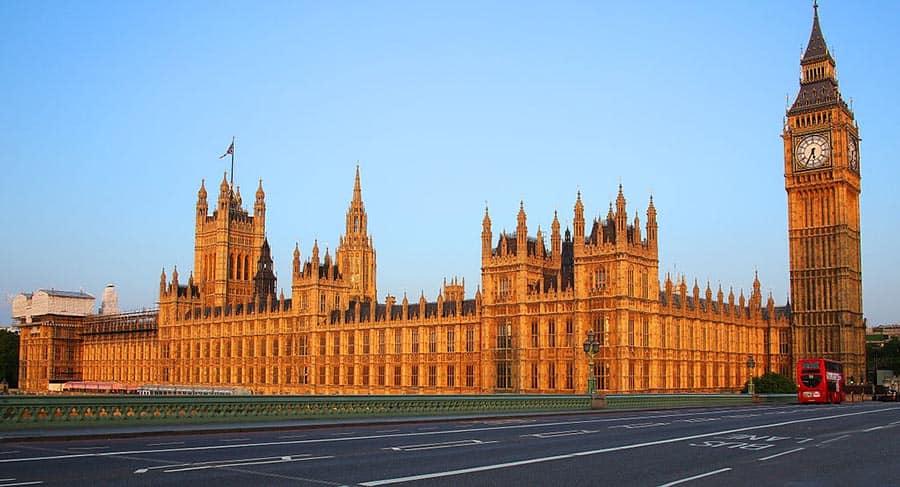Health and Care Bill: Integrated care boards and integrated care partnerships

Last week, the UK Government introduced its anticipated Health and Care Bill to Parliament, setting out proposals to build a modern health and care system that delivers better and more joined-up care in local communities.
The bill will ensure each part of England has an integrated care board and an integrated care partnership that are responsible for bringing together local NHS and local government, such as social care, mental health services and public health advice, to deliver joined-up care for its local population.
Below, AT Today has gone into more detail about integrated care boards and integrated care partnerships, how they will operate and their responsibilities.
Integrated care boards
NHS England must establish integrated care boards, the bill says. An integrated care board has the function of arranging for the provision of services for the purposes of the health service in England. This includes repurposing Clinical Commissioning Groups (CCGs), which are currently responsible for commissioning in England.
The area for which an integrated care board is established in England must not coincide or overlap with the area of any other integrated care board. NHS England must ensure that, at all times on and after the appointed day (as directed by the Secretary of State), the areas of integrated care boards together cover the whole of England.
Initially, NHS England must publish a list of the initial areas for which integrated care boards are to be established. The relevant CCG/CCGs for an initial area must propose the constitution of the first integrated care board to be established for that area. Before making a proposal, the relevant CCG/CCGs must consult any persons they consider it appropriate to consult.
Once an integrated care board is established in accordance with the appointed day laid out by the Secretary of State, the CCG must be abolished at the beginning of the appointed day.
Moreover, the Health and Care Bill states that integrated care boards will be responsible for commissioning certain health services, including the provision of the following areas in order to meet the reasonable requirements of the people for whom it has responsibility: hospital accommodation; dental services; nursing and ambulance services; services or facilities for the prevention of illness, the care of persons suffering from illness and the after-care of persons who have suffered from illness as the board considers are appropriate as part of the health service; and more.
Each integrated care board may also arrange for the provision of such services or facilities as it considers appropriate for the purposes of the health service that relate to securing improvement in the physical and mental health of the people for whom it has responsibility, or in the prevention, diagnosis and treatment of illness in those people.
Additionally, the Health and Care Bill says that each integrated care board should act efficiently and economically; continuously improve outcomes of the services it commissions; reduce inequalities between patients in terms of accessing services and outcomes; promote the involvement of patients and carers for improving services; promote innovation in the provision of health services; and promote integration across health and social care.
Integrated care partnerships
An integrated care board and each responsible local authority whose area coincides with or falls wholly or partly within the board’s area must establish a joint committee for the board’s area called an “integrated care partnership”. Each partnership will be responsible for its own procedures.
The integrated care partnership for an area is to consist of:
- one member appointed by the integrated care board
- one member appointed by each of the responsible local authorities
- any members appointed by the integrated care partnership
An integrated care partnership must prepare an integrated care strategy, setting out how the assessed needs in relation to its area are to be met by the exercise of functions of the integrated care board for its area, NHS England, or the responsible local authorities whose areas coincide with or fall wholly or partly within its area.
Each strategy must also take into consideration any mandate or guidance issued by the Secretary of State. They must involve Local Healthwatch organisations and people who live or work in the area when developing a strategy.
The Health and Care Bill further reads: “An integrated care partnership may include in a strategy under this section a statement of its views on how arrangements for the provision of health-related services in its area could be more closely integrated with arrangements for the provision of health services and social care services in that area.”
An integrated care partnership must also publish each integrated care strategy, give a copy of each integrated care strategy to each responsible local authority whose area coincides with or falls wholly or partly within its area and each partner integrated care board of those responsible local authorities.
Importantly, the bill states that: “…the responsible local authority and its partner integrated care boards need not prepare a new joint local health and wellbeing strategy if, having considered the integrated care strategy, they consider that the existing joint local health and wellbeing strategy is sufficient.”
Both the responsible local authority and each of its partner integrated care boards, as well as NHS England, must, in exercising functions, have regard to: any assessment of relevant needs for their given area; any integrated care strategy prepared in relation to an area that coincides with or includes the whole or part of the responsible local authority’s or NHS England’s area; and any joint local health and wellbeing strategy prepared by the responsible local authority and its partner integrated care boards.

